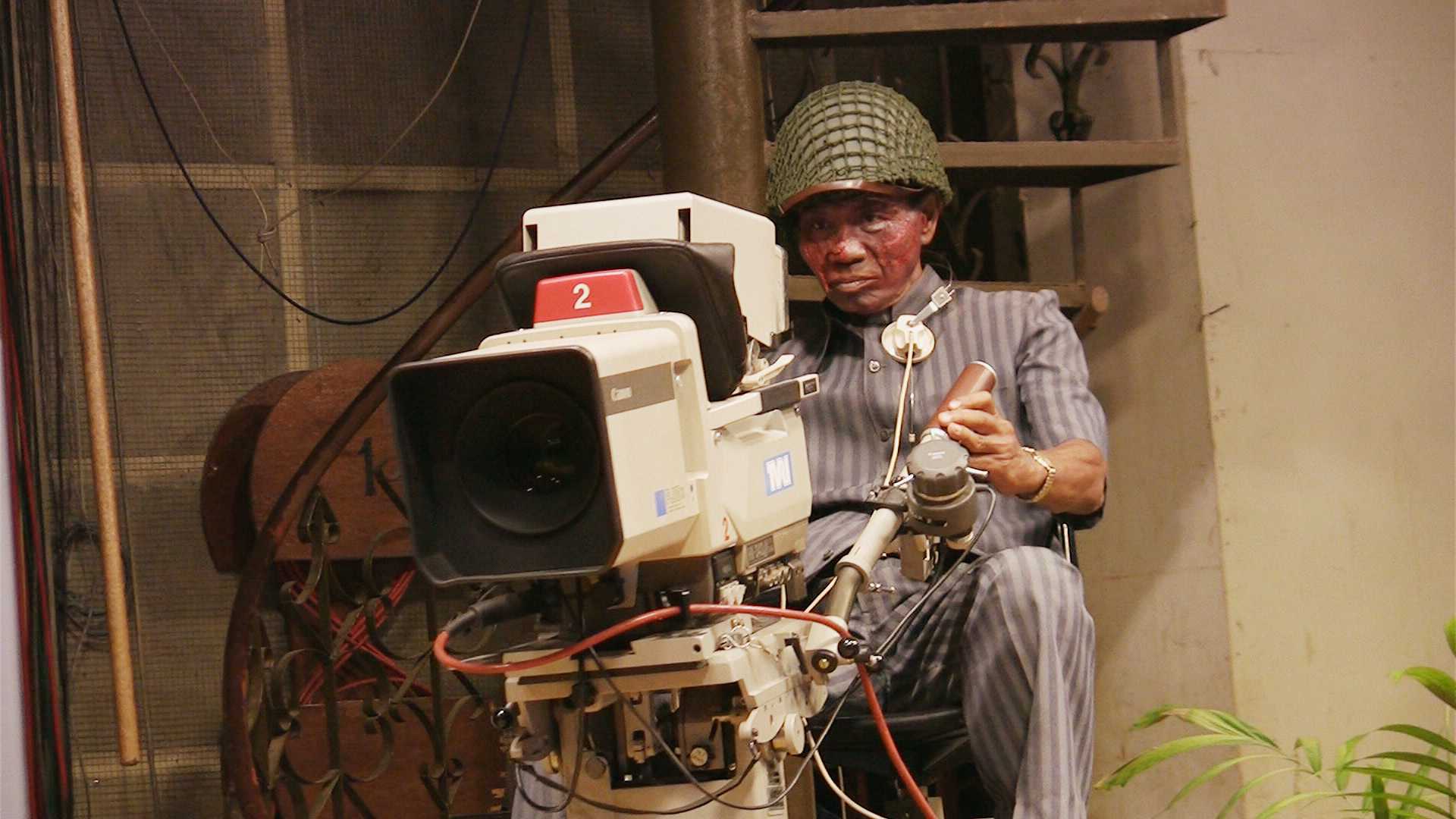Joshua Oppenheimer's experimental documentary (now streaming on Netflix) does an extraordinary thing. It takes a look at mass genocide through the eyes of the people who committed it- the victors who "won" over the rebels acting against the state. In Indonesia in 1965, following a failed attempted coup, local gangsters were hired to help wipe out much of the population, in an anti-communist purge led by the Indonesian army. They formed infamous death squads and killed upwards of 500,000 people in one of the worst massacres of the last century. Now, Oppenheimer goes back to Indonesia to interview the people took part in these atrocities, who are now part of a right-wing paramilitary group called the Pemuda Pencasila, and protected and in some cases even celebrated by the state.
The leader of one of these squads, Anwar Congo, is the main subject of the film, along with several other former gangsters and petty criminals who went on to commit crimes against humanity. Congo and his friends are happy to talk about what they did, reminisce, even re-enact in classic Hollywood fashion the killings they took part in, and led. The result of this approach is a haunting, surreal, deeply disturbing account of history from the people who have never been held accountable for what they've done. It's antithetical to every history lesson many in the West have ever been taught, and indeed, it's like stepping into another world, an upside-down universe where any normal notion of morality and evil is turned on its head.
The perpetrators of these crimes have dealt with the fallout in various ways- some have no regrets and still celebrate their victory (it was all in the name of "anti-communism" after all, as they've been told over and over again). Others seem to have a total acceptance of the murders, even understanding the horrifying nature of it while admitting that in a practical sense there's nothing to do but live with it after it's done. In a particularly sickening interview, one of Congo's friends compares actions of right and wrong as flexible, always changing depending on who's in power at a particular time. He compares the killings to the torture practices instilled by the Bush administration at Guantanamo and the foundational lie of the Iraq war, seeing as no one from the Bush White House has ever been held accountable for those crimes either. Your heart sinks while watching this as you realize recent U.S. history will now be pointed to as an example for other countries who commit atrocities without retribution.
Anwar Congo himself is the most disturbing of all, as his own accounts of this time seem to haunt him personally, and over the course of the film he communicates his own nightmares and flashbacks to the murders, culminating in an excruciating final sequence that will stay with you for days. Despite the fact that all the criminals seem to glory in their horrific past and are eager to be on camera and share it with the filmmakers, the questions the film brings up about the nature of evil in human beings are the most unsettling. These frail old men do not now resemble the killing machines they once were and their perceived affection for family members do not match the caricatures we often get of crazed murderers in the movies or in life. These men could be people you run into on the street. And that thought is so troubling that the film leaves a lasting impact unlike anything else you'll see this year.
* * * *




